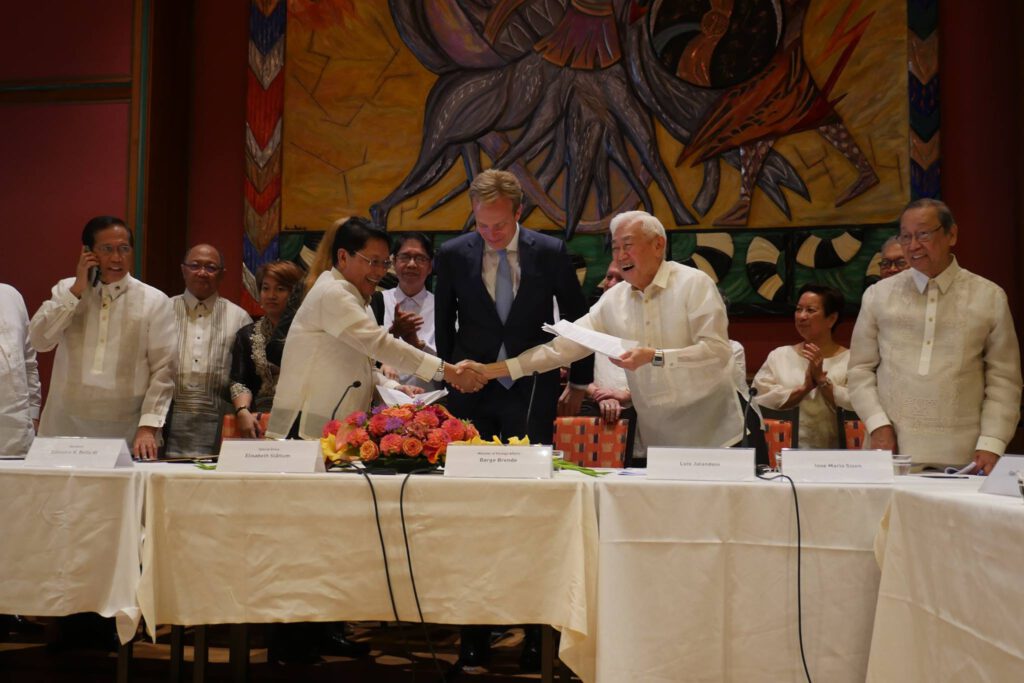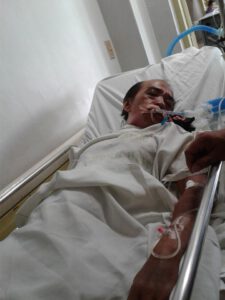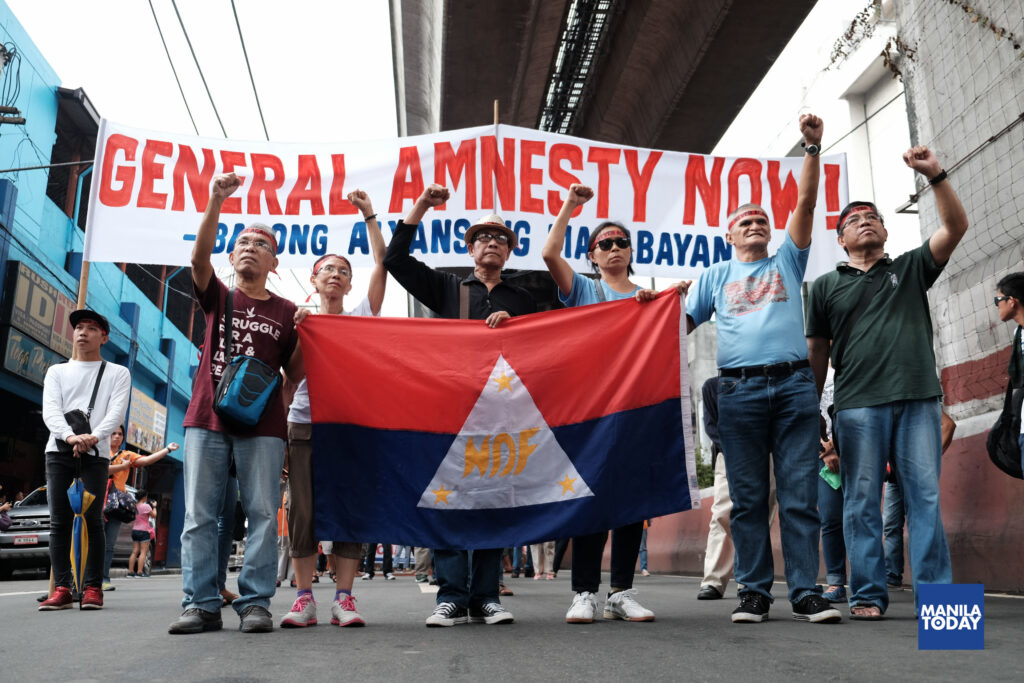How many years can some people exist,
before they are allowed to be free?
– Bob Dylan, Nobel Prize in Literature 2016 Awardee
Who are the political prisoners? Our good old dictionaries would define it as a person put in prison because of his or her political beliefs or someone imprisoned for having opposed or criticized the government.
If we would accept that then the Philippine Constitution, as well as other human rights declarations recognized or signed by the Philippine government, would will that there be no political prisoners. Right now, there are 401 of them in prisons all over the country.
From an interview with Atty. Edre Olalia of National Union of Peoples’ Lawyers, 10 compelling, if not binding, reasons for the release of political prisoners under the current Rodrigo Duterte administration are listed below.

First off, here are the reasons related with the ongoing peace talks between the Government of the Philippines (GRP) and the National Democratic Front of the Philippines (NDFP) and may even be considered incontrovertible actualities on the matter of the release of political prisoners now.
1. Goodwill and confidence-building measure for the peace talks. The immediate release of political prisoners can also be seen as a demonstration of goodwill and a further confidence-building gesture for the peace negotiations. In fact, it is a “positive incentive” for negotiating a more stable, realistic and principled bilateral ceasefire.

2. Commitment in the exploratory talks for formal peace talks to resume. June 15, 2016 Joint Statement between GRP and NDFP expressly stipulates that formal talks will be resumed and conducted “in accordance with previously signed agreements” (including JASIG and CARHRIHL which provide bases for the release of political prisoners) and that the GRP Panel will recommend to President Duterte “the immediate release” of NDFP consultants and other JASIG protected persons and of “prisoners/detainees based on humanitarian grounds.”

3. Reaffirmation of previous signed agreements JASIG and CARHRIHL. The signed agreements in the GRP and NDFP peace talks are binding, and succeeding administrations must adhere to them. Among the previously signed agreements that should have kept the government from jailing its dissenters are the JASIG and the CARHRIHL.
The GRP-NDFP Joint Agreement on Safety & Immunity Guarantees (JASIG) of February 24, 1995 explicitly mandates that not only negotiators, consultants, staffers and security are guaranteed immunity from arrest or detention due to any involvement or participation in the peace negotiations but also those who assist them or attend public consultations or peaceful assemblies.
The GRP-NDFP Comprehensive Agreement on Respect for Human Rights and International Law (CARHRIHL) of March 16, 1998 stipulates that the GRP shall abide by its political offense doctrine laid down in People vs. Hernandez and shall forthwith review the cases of all prisoners or detainees who have been charged, detained, or convicted contrary to this doctrine, and shall immediately release them.
In addition, the CARHRIHL obliged the GRP to work for the immediate repeal of repressive laws, decrees and executive issuances and undertake remedies against repressive jurisprudence, and shall not invoke them to contravene or circumvent its provisions on human rights. These laws and jurisprudence provide the legal justification for the political persecution.
4. Signed agreement after the first round of formal talks. The August 26, 2016 Joint Statement on the Resumption of Formal Talks in the Peace Negotiations Between the GRP and the NDFP agreed to reaffirm previous agreements and pointed out the commitment of President Duterte “to cause the early release of prisoners (as listed by the NDFP) who are sick, elderly, overly long detained and women based on humanitarian grounds.”
The Parties agreed too that the GRP “will immediately recommend” to President Duterte “the issuance of an Amnesty Proclamation” for the release of prisoners who are listed by the NDFP who have “been arrested, charged, and/or convicted for alleged acts or omissions xxx in connection with alleged crimes in pursuit of one’s political beliefs. ”

5. Signed agreement after the second round of formal talks. The October 9, 2016 Joint Statement on the Second Round of Talks Between the GRP and the NDFP where recently-signed Joint Statements of June and August were reviewed “on the issue of the immediate release of detained prisoners listed by the NDFP, giving premium on those prisoners who will be released based on humanitarian grounds.”
The GRP also committed to “accelerate the process” for releases on bail, recognizance or pardon, expedite the presidential clemency for the release of three NDFP consultants, and “release the prisoners who are listed by the NDFP in accordance with the CARHRIHL pending the approval of the proposed amnesty.”
Finally, the GRP affirmed its “commitment to work for the release of these prisoners in expeditious and acceptable modes.”
6. Duterte’s promises. GRP has made several oral pledges. Starting from the offer in May 2016 of then presumptive President Duterte to grant general amnesty to all political prisoners down to the GRP Panel’s bold promise on October 8, 2016 to immediately release the first 200 priority political prisoners who are sick, elderly, long termers and women by October 27, 2016 in advance of the general amnesty. In the meantime, the numbers the GRP has been floating keep on a-changing. But as of today, only one convicted who was recently pardoned had been actually released and only a couple of days ago.

From the administrations before Duterte and to the administrations that would follow, these are the reasons (one is a Supreme Court jurisprudence) for releasing political prisoners that should find constant solid ground, if we are to be made to continue believing that we live in a democracy.
7. Trumped-up charges against political prisoners should be dismissed. The Philippine’s Supreme Court ruling in People vs. Amado V. Hernandez of July 18, 1956 mandates that all acts in pursuit, in furtherance or in connection with one’s political beliefs are absorbed or subsumed in one political offense of rebellion as a socially-rooted act and cannot be subdivided or multiplied into several common crimes like murder, arson, robbery, kidnapping, illegal possession of firearms or explosives etc. A violation of this doctrine calls for the dismissal of the false, improper or trumped-up charges.

8. Humanitarian grounds. Humanitarian considerations for the sick, ailing (one a quadruple bypass survivor) elderly (oldest is 77 years old), long termers (one in jail for 30 years already), women (one has a child born while imprisoned) and minors (at the time they were arrested) dictate that they should be released immediately as a moral imperative.
With the recent death of detainee, Bernabe Ocasla, who suffered a stroke in prison and who remained handcuffed to his bed wearing soiled sweaty jail garb even while in a state of coma and the hospitalization of two others, the immediate release of the sick and ailing is a matter of life and death.
9. A matter of human rights. Section 18 of the Bill of Rights in the Philippine Constitution, the law of the land, holds that “No person shall be detained solely by reason of his political beliefs and aspirations.” In some cases of the political prisoners, other rights violated include right to liberty, expression, unreasonable searches and seizures, organization, or to not be put in jeopardy of punishment for the same offense among others. The universal concept of political prisoners has also been enshrined in the Hernandez case. The Universal Declaration of Human Rights and the International Covenant on Civil and Political Rights ensures right/freedom of political beliefs, of dissent and speech. The International Humanitarian Law recognizes the rights of insurgents, rebels and belligerents. The Philippine government recognized these laws.
10. A matter of justice. These political prisoners – who are mostly mass activists, farmers, indigenous peoples, environmentalist or anti-destructive mines advocates, human rights defenders, civilians labelled as supporters or sympathizers of the armed revolutionary movement – should not have been arrested and charged in the first place with either improper or even false or fabricated charges based on planted, manufactured or perjured evidence. Releasing them is righting a wrong they have been suffering for the longest time. To continue incarcerating them speaks badly of what kind of society and government we have.





























